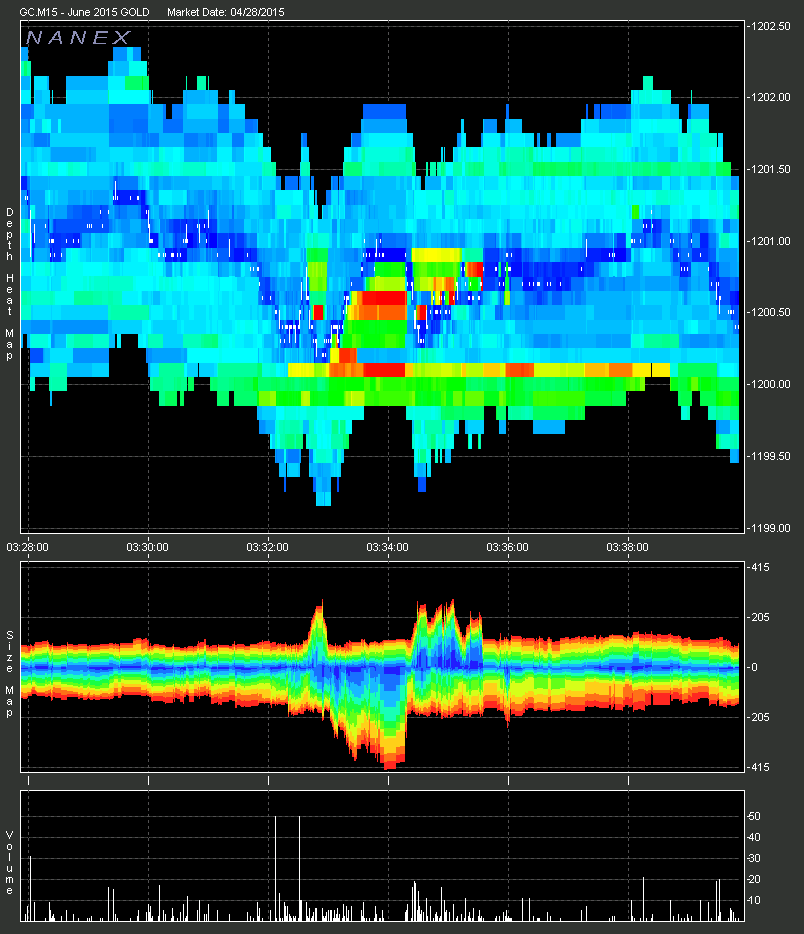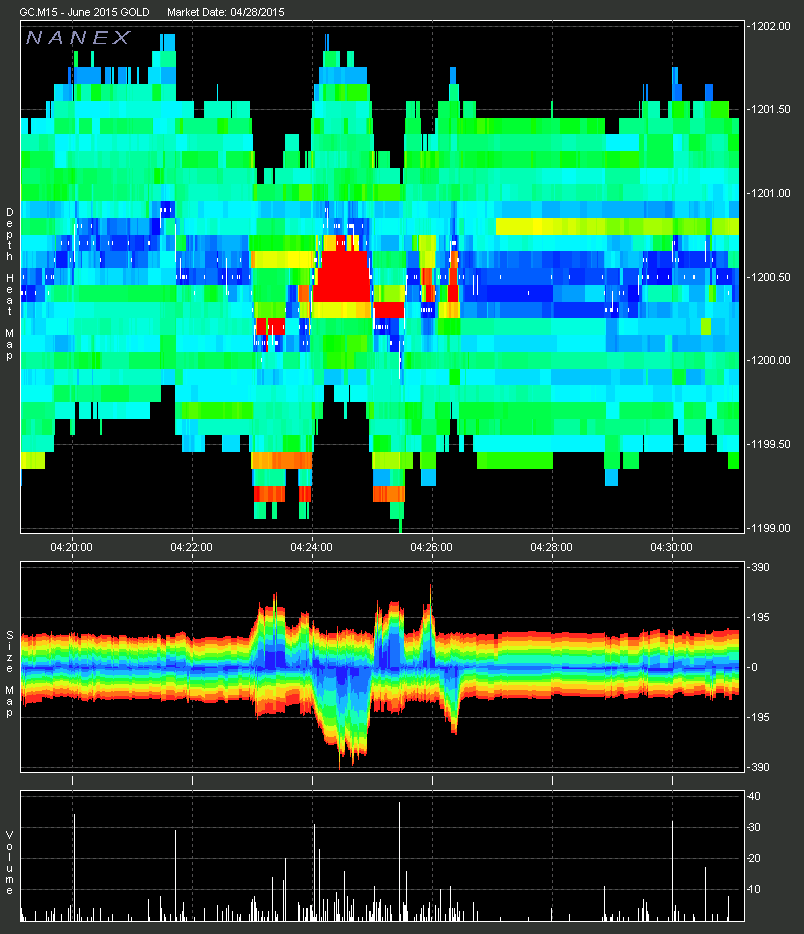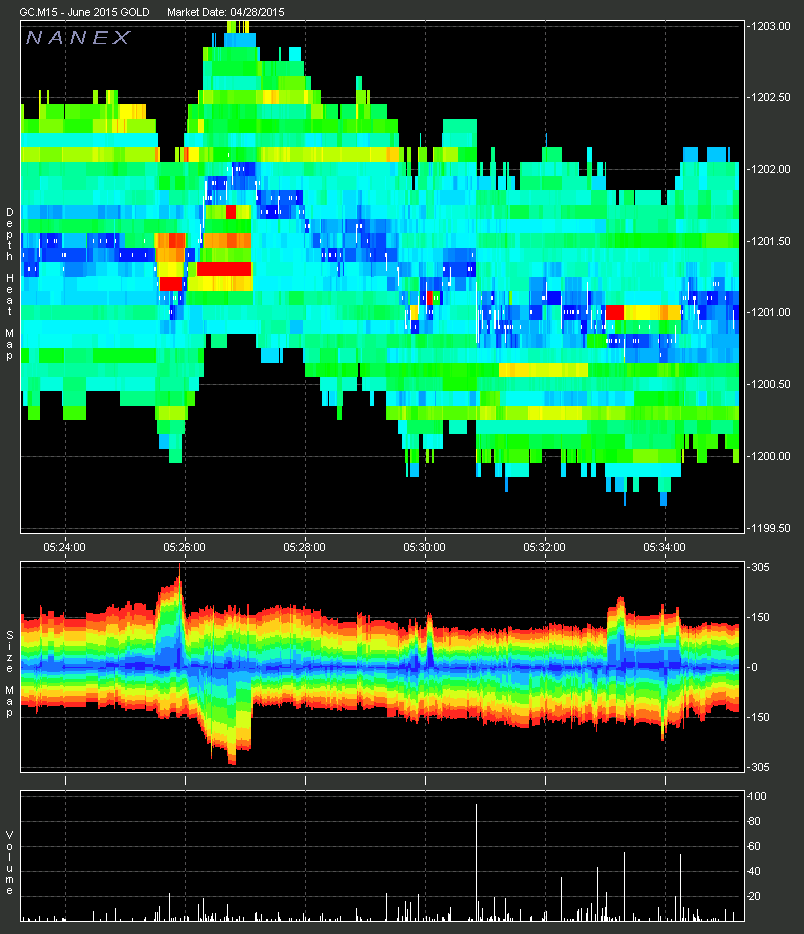
Spoofing continues in many, if not all futures contracts dominated by High Frequency Trading (HFT) algorithms - in spite of CME's new "Disruptive Practices Prohibited" rule (which prohibits spoofing, among other forms of manipulation). Spoofing continues in spite of the recent, widely reported case brought by the Department of Justice against a trader for spoofing eMinis (ES) just before the flash crash.
It doesn't take much effort to spot many HFT spoofing algorithms in real-time. Here are 3 examples we easily found in the June 2015 Comex (CME) Gold Futures (symbol: GC) on the morning of April 28, 2015. All times are Eastern Daylight. In each of these cases, no trades (or a tiny few) executed against the large "spoof" order. You can see how prices were influenced by the sudden appearance (and disappearance) of these large, outsized orders.
To understand how spoofing works, be sure to read CFTC, Panther Hunter. A few other spoofing cases we've documented:
You may also be interested in reading the HTG Lawsuit against one or more HFT firm(s) for spoofing Treasury Futures: this is a lawsuit filed by one HFT firm against another and documents thousands of examples of spoofing in U.S. Treasury Futures over a 20 month period.
It appears the CME identified the gold futures spoofer illustrated below, resulting in an immediate suspension (see CME notice here, and here).


